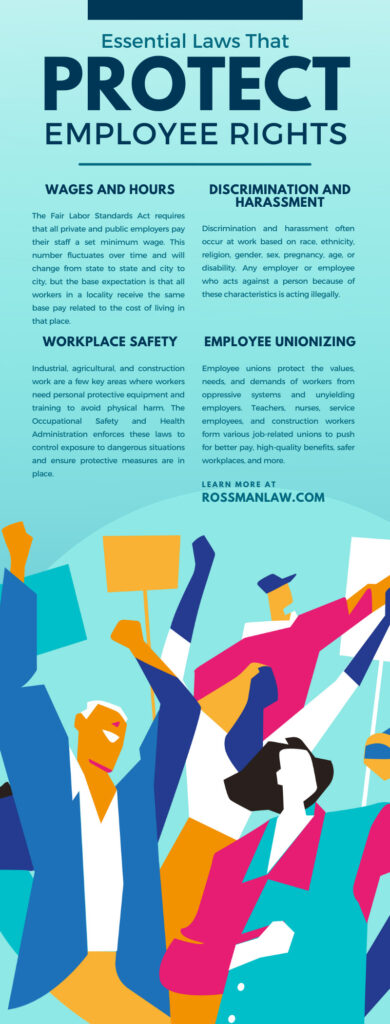You’ve set your alarm, dressed in your work attire, and made your way to the office, only to be greeted with the news that your shift has been canceled and you’re being sent home.
Frustrating, right?
Not only did you make the effort to come in, but you’re also unsure if you’ll be compensated for your time.
This -” If I Show Up To Work And Get Sent Home Do I Get Paid “ is quite commonly asked by many employees, since the answer is not that straight.
Understanding your pay rights in these situations is crucial. Many employees face the dilemma of being sent home after showing up for work and may not know whether they’re entitled to compensation.
Clarifying these rights helps prevent misunderstandings and ensures you’re fairly compensated for your time and effort.
In this article, we will explore:
- The legal framework and regulations surrounding pay when sent home.
- Common scenarios and how they impact pay.
- Specific pay practices and rights you should be aware of.
- Examples from various industries to illustrate common practices.
- Actions employees can take if they find themselves in such situations.
- Tips for employers to handle these scenarios fairly.
This guide aims to provide you with a comprehensive understanding of your rights and options if you find yourself being sent home after reporting for work.
At the end of the article, you’ll know if – If I Show Up To Work And Get Sent Home Do I Get Paid
Also, feel free to check our website TheLegalStories, we cover in-depth about employment, corporate, and workplace that may help in learning laws & regulations.
Whether you get paid if you show up to work and get sent home depends on several factors, including your employment contract, company policies, and local labor laws.
It’s always best to check your employment contract or talk to your HR department to know for sure what your rights are in this situation. You can also find information about your state’s labor laws [online](labor laws by state).
Your employment classification: There are two main categories: exempt and non-exempt employees.
- Exempt employees (usually salaried) typically get paid for their full salary regardless of hours worked, unless they are absent for a full day or week.
- Non-exempt employees (usually hourly) typically only get paid for the hours they actually work.
Local laws: Some states have laws requiring employers to pay employees for a minimum amount of time, even if they are sent home early. This is called reporting time pay.
what you might expect:
- Non-exempt employee, no reporting time pay laws: You likely wouldn’t get paid for the time you weren’t working.
- Non-exempt employee, with reporting time pay laws: You might get paid for a minimum number of hours, even if you were sent home early.
- Exempt employee: You would likely get paid your full salary for the day.
Understanding Legal Framework and Regulations
Federal Laws
At the federal level, the Fair Labor Standards Act (FLSA) governs many aspects of wage and hour laws in the United States.
For obvious reasons, there is much more information under FLSA, but here is what you need to know-
👉🏼 Reporting Time Pay
The FLSA does not mandate reporting time pay, but some states and employers provide it voluntarily. Reporting time pay refers to compensation for employees who show up to work but are sent home early. It’s important to check whether your state or company offers this.
👉🏼 Minimum Wage and Overtime
The FLSA ensures that employees are paid at least the federal minimum wage and overtime pay for hours worked over 40 in a workweek. If you work part of your shift and are sent home, you should still receive at least the minimum wage for the hours worked.
State-Specific Laws
State laws can vary significantly when it comes to pay for employees sent home early.
It’s crucial for employees to check their state’s specific labor laws or consult with a local employment attorney to understand their rights.
👉🏼 California: California law mandates reporting time pay for non-exempt employees. If an employee is required to report to work but is sent home early, they must be paid for a minimum of half of their scheduled shift or at least two hours of pay, whichever is greater.
👉🏼 New York: In New York, there is no statewide requirement for reporting time pay, but certain industries, like retail and hospitality, may have their own rules or agreements in place.
👉🏼 Texas: Texas does not have specific reporting time pay laws. However, employees are still entitled to be paid for the hours actually worked, in accordance with federal minimum wage laws.
Company Policies
Even if we have the federal laws and the state laws at play, it is also all right for a company to have it’s own rules.
These policies are produced by the companies; however, they operate under federal and state laws and regulations.
What you should know is that company policies can also dictate (If I Show Up To Work And Get Sent Home Do I Get Paid), whether or not the employee is paid when sent home early.
If you are an employee, then I urge you to read through their employment contracts, policies, and company handbooks to see how your employer deals with them. Companies may have their own guidelines regarding these:
✔️ Minimum Work Time: Some employers offer a guaranteed minimum number of hours or reporting time pay regardless of state laws.
✔️ Shift Cancellations: Company policies might provide compensation if shifts are canceled after employees have arrived, as a part of maintaining employee morale and managing scheduling.
✔️ Contractual Agreements: Employees with specific employment contracts or union agreements may have additional rights or guarantees regarding pay when sent home.
Let’s Learn About Common Scenarios

I will discuss a few common scenarios that is seen mostly and understanding these scenarios helps employees know what to expect and how to address any discrepancies between actual and expected pay when faced with unexpected changes to their work schedule.
1️⃣ Scheduled Shift Cancellation
When an entire shift is canceled after an employee has arrived at work, several factors come into play:
👉🏼 Company Policies: Some companies have policies in place that guarantee compensation for a minimum number of hours, even if the shift is canceled. This is more common in industries with high employee turnover or where shift cancellations are frequent.
👉🏼 Legal Requirements: In states like California, employees are entitled to reporting time pay if they show up for a shift that is canceled. They must be paid for at least half of their scheduled shift, or a minimum of two hours, whichever is greater.
👉🏼 Employee Recourse: If there are no specific laws or policies covering this situation, employees may need to negotiate with their employer or file a complaint with the Department of Labor if they believe they’re not being fairly compensated.
2️⃣ Partial Shift Worked
When an employee works part of their shift before being sent home, the pay scenario generally includes:
👉🏼 Minimum Wage: Employees should be paid for the hours they actually worked, regardless of being sent home early. This is a federal requirement under the Fair Labor Standards Act (FLSA).
👉🏼 Additional Compensation: Some companies may offer additional compensation or pay for a minimum number of hours worked to cover the inconvenience. This is typically a matter of company policy rather than a legal obligation.
👉🏼 Example: If an employee’s shift is cut short from 8 hours to 4 hours, they should be paid for the 4 hours worked. If the company has a policy for guaranteed hours, they might receive compensation for the additional 4 hours as well.
3️⃣ On-Call or Standby Situations
In on-call or standby situations, where employees are sent home but remain available to return to work if needed:
👉🏼 On-Call Pay: Employers may not be required to pay for on-call time unless the employee is restricted in their activities or unable to use their time freely. This depends on state laws and specific employment contracts.
👉🏼 Standby Pay: Some employers provide standby pay or a retainer fee for employees who are on standby but not actively working. This practice varies widely and is often stipulated in employment agreements.
👉🏼 Legal and Policy Considerations: Employees should check their state laws and company policies to understand their rights regarding on-call or standby compensation. If on-call time significantly restricts personal activities, some states or agreements might require payment.
Understanding Pay Practices and Rights
Understanding these pay practices and rights helps employees guide their compensation entitlements effectively and ensures they are fairly compensated for their time and availability.
✅ Reporting Time Pay
Reporting time pay is compensation provided to employees who show up for work as scheduled but are sent home before completing their scheduled shift. This pay is intended to compensate workers for the inconvenience and time spent traveling to work.
🟢 Application: Reporting time pay requirements vary by state and company policy. For example:
🟢 California: Employees are entitled to reporting time pay if they show up for a shift that is canceled or significantly reduced. They must be paid for at least half of their scheduled shift or a minimum of two hours, whichever is greater.
🟢 New York: While there is no statewide requirement, certain industries or employers may offer reporting time pay voluntarily.
🟢 Other States: Many states do not have specific reporting time pay laws, so employees need to check their state regulations and company policies.
🟢 Employer Practices: Companies that offer reporting time pay usually include it in their employee handbook or contracts. It’s important for employees to be aware of their employer’s policies.
✅ Minimum Work Time Guarantees
Minimum work time guarantees ensure that employees are paid for a minimum number of hours, even if they work less than their scheduled shift. This practice is meant to provide some level of compensation when shifts are cut short.
🟢 Application: Minimum work time guarantees can vary:
🟢 California: If an employee reports to work and is sent home early, they are guaranteed to be paid for at least half of their scheduled shift or a minimum of two hours, whichever is greater.
🟢 Company Policies: Some employers may have their own minimum work time guarantees that exceed state requirements or offer additional compensation to maintain employee morale and fairness.
🟢 Employee Awareness: Employees should review their employment contracts and company policies to understand if they are entitled to minimum work time guarantees and how they are applied.
✅ Pay for On-Call Time
On-call time refers to periods when employees are not actively working but are required to be available to return to work if needed. Pay for on-call time depends on various factors, including state laws and company policies.
🟢 Federal Standards: The FLSA does not require pay for on-call time unless the employee is significantly restricted in their personal activities or is required to stay on the employer’s premises.
🟢 State Laws: Some states may have specific requirements regarding on-call pay. Employees should check local laws for any additional protections or requirements.
🟢 Company Policies: Employers may offer on-call pay as part of their compensation packages. This is often detailed in employment contracts or company policies.
🟢 Considerations: Employees should understand whether their on-call time is paid or unpaid and how it affects their total compensation. If on-call duties are restrictive or require substantial availability, employees might be entitled to additional pay or benefits.
Examples by Industry

These industry-specific practices help employees know what to expect and ensure they are aware of their rights and potential compensation when faced with unexpected changes to their work schedules.
✅ Retail
🟢 Reporting Time Pay: Retail employers often have policies to handle reporting time pay. For instance, in California, retail employees are entitled to reporting time pay if they report for a scheduled shift but are sent home early. This usually means they are paid for at least two hours or half of their scheduled shift.
🟢 Minimum Work Time Guarantees: Many retail stores provide a minimum number of hours guaranteed, but this is more common in larger chains or unionized settings.
🟢 Shift Cancellations: Retailers might notify employees of shift cancellations in advance to avoid the need for reporting time pay. However, if employees are sent home upon arrival, they might receive compensation based on store policy or state law.
🟢 Example: A cashier at a large retail chain arrives for a scheduled 8-hour shift but is sent home after just 3 hours due to low customer traffic. If the company follows California regulations, the employee would receive pay for at least 4 hours (half of the original shift) or the minimum reporting time, whichever is greater.
✅ Hospitality
🟢 Reporting Time Pay: In the hospitality industry, including hotels and restaurants, reporting time pay practices vary. Some establishments may offer reporting time pay to compensate for the inconvenience of traveling to work. This is more common in larger hotel chains or restaurants with formal policies.
🟢 Minimum Work Time Guarantees: Hotels and restaurants may not always provide minimum work time guarantees, but some may offer compensation for a minimum number of hours worked if shifts are cut short.
🟢 Shift Cancellations: Hospitality businesses might have policies for compensating employees if shifts are canceled after they arrive. This can depend on whether the business is part of a larger chain or has specific agreements in place.
🟢 Example: A server at a restaurant is scheduled for a 6-hour shift but is sent home after 2 hours due to a slow evening. If the restaurant offers reporting time pay, the server might receive compensation for a minimum of 4 hours (half of the original shift) or as specified in the restaurant’s policy.
✅ Manufacturing
🟢 Reporting Time Pay: Manufacturing plants often have strict schedules and may not commonly offer reporting time pay. However, some plants might have policies to cover employees who show up but are sent home early, especially if shift cancellations are due to unforeseen circumstances like equipment failure.
🟢 Minimum Work Time Guarantees: Some manufacturing facilities may offer minimum work time guarantees to ensure employees are compensated for a minimum number of hours, especially in unionized environments.
🟢 Shift Cancellations: Manufacturing plants might provide advance notice of shift cancellations to minimize the need for reporting time pay. If employees are sent home upon arrival, compensation practices can vary based on company policy and contractual agreements.
🟢 Example: An assembly line worker arrives for an 8-hour shift but is sent home after just 1 hour due to a sudden machine breakdown. If the plant has a minimum work time guarantee, the worker might be paid for a minimum number of hours as specified in the policy or collective bargaining agreement.
🔖 Lawyer Vs Paralegal – Scope, Education, Salaries, Career & More
Understanding Employee Actions and Rights
Taking these actions ensures that you are well informed about your rights, effectively address any pay disputes, and seek appropriate legal recourse if necessary.
☑️ Reviewing Contracts and Policies
✔️ Employment Contracts: Look for clauses related to pay practices, reporting time pay, minimum work time guarantees, and shift cancellations. Contracts may outline specific compensation terms or guarantees for showing up to work.
✔️ Understanding Provisions: Ensure you understand any provisions related to compensation for partial shifts, on-call time, and policies for sending employees home early.
☑️ Company Policies:
✔️ Employee Handbook: Review the employee handbook or any official policy documents provided by your employer. These documents often contain information on pay practices, shift cancellations, and reporting time pay.
✔️ Updates and Changes: Be aware of any updates or changes to company policies that might affect your pay. Check if the policies have been revised and how it impacts your rights.
☑️ Action To Take:
✔️ Document Review: Carefully read and document relevant sections of your contract and policies. Highlight any clauses related to compensation and shift cancellations.
✔️ Clarifications: If any parts of the contract or policy are unclear, seek clarification from your HR department or supervisor.
☑️ Initiate With Consulting HR
✔️ Contact HR: If you have questions or disputes about your pay when sent home, contact your Human Resources department. HR is responsible for handling employee concerns and clarifying company policies.
✔️ Provide Documentation: When discussing your issue with HR, provide any relevant documentation, such as your work schedule, shift cancellation notices, or communications about being sent home.
✔️ Ask for Clarification: Request detailed explanations of the company’s pay practices related to reporting time pay, minimum work time guarantees, and shift cancellations.
✔️ Inquire About Policies: Ask if there are specific company policies or agreements that address your situation and how they apply.
✔️ Written Confirmation: After the consultation, request written confirmation of any agreements or resolutions discussed. This helps ensure that there is a formal record of the resolution.
✔️ Escalate if Necessary: If HR does not resolve the issue to your satisfaction, consider escalating the matter to higher management or a relevant employee relations committee.
When To Seek Legal Advice
✔️ Unresolved Disputes: If your pay issue remains unresolved despite consulting HR and reviewing company policies, seeking legal advice may be necessary.
✔️ Violation of Rights: If you believe your rights under federal or state labor laws are being violated, such as not receiving required compensation for reporting time or minimum hours, legal assistance can help.
How To Find Legal Help?
✔️ Labor Attorneys: Look for attorneys who specialize in employment and labor law. They can provide guidance on your rights and help you understand whether you have a legal claim.
✔️ Legal Aid Organizations: Contact local legal aid organizations or worker rights groups that provide free or low-cost legal assistance to employees facing labor disputes.
Preparing for Legal Consultation:
✔️ Gather Evidence: Collect all relevant documents, including your employment contract, company policies, communication with HR, and records of hours worked.
✔️ Outline Your Issue: Clearly outline the nature of your dispute, including what compensation you believe you are owed and the steps you have taken to resolve the issue.
Tips for Employers
☑️ Consider Clear Communication
Policy Documentation: Clearly document all policies related to pay, shift cancellations, and reporting time pay in an employee handbook or company manual. Ensure that these documents are easily accessible to all employees.
Employee Onboarding: During onboarding, thoroughly review relevant policies with new hires to ensure they understand how compensation works if shifts are canceled or if they are sent home early.
Regular Updates: Keep employees informed about any changes to pay policies or procedures. Regularly update the employee handbook and communicate any updates through meetings or official memos.
Open Channels: Maintain open lines of communication where employees can ask questions and get clarifications about pay policies. This can be through HR departments, direct supervisors, or internal communication platforms.
☑️ Fair Pay Practices
Equitable Compensation: Ensure that all employees are compensated fairly for their time, including scenarios where shifts are cut short or employees are sent home early. Implement clear guidelines for reporting time pay and minimum work time guarantees.
Employee Morale: Fair pay practices contribute to higher employee satisfaction and morale. Consistently apply policies to all employees to build trust and foster a positive work environment.
Feedback Mechanisms: Establish feedback mechanisms to understand employee concerns regarding pay practices. Use this feedback to make adjustments and improvements to compensation policies.
Training for Managers: Train managers and supervisors on how to handle shift cancellations and reporting time pay fairly. Ensure they are aware of the company policies and legal requirements.
☑️ Legal Compliance
Regular Audits: Conduct regular audits of company pay practices to ensure they comply with local, state, and federal labor laws. This includes verifying adherence to minimum wage laws, overtime rules, and reporting time pay requirements.
Stay Informed: Keep up-to-date with changes in labor laws and regulations at both the federal and state levels. Consult with legal professionals or labor law experts to ensure your company’s policies are compliant.
Legal Consultations: Work with employment lawyers to review and update company policies regularly. This helps prevent legal disputes and ensures that your practices align with current laws.
Documentation: Maintain thorough documentation of all pay policies, employee communications, and any adjustments made to ensure compliance. This documentation can be crucial in resolving disputes or defending against claims.
🚩 Minimum-Wage Law Forces The Wage To Remain Above The Equilibrium Level
If I Show Up To Work And Get Sent Home Do I Get Paid
Generally, no, you don’t get paid if you show up to work and are immediately sent home. This is because you haven’t performed any work.
Exceptions and Considerations:
Collective Bargaining Agreements: Some union contracts or collective bargaining agreements might stipulate that employees receive a certain amount of pay if they report to work but are sent home early.
State and Local Laws: Specific state or local labor laws may have provisions regarding “show-up pay” or minimum guaranteed hours.
Company Policies: Your employer’s internal policies could include provisions for pay in such situations.
To get a definitive answer for your situation, you should:
- Check Your Employment Contract: Review your employment contract for any relevant clauses.
- Consult Your Employee Handbook: Look for company policies regarding pay in case of early dismissal.
- Understand Local Labor Laws: Research the labor laws in your jurisdiction to see if there are any specific regulations.
- Talk to Your Employer: If you’re unsure, directly ask your employer about their policy.
It’s important to document the incident, including the date, time, and reason given for sending you home. This can be helpful if you need to dispute the matter later.
FAQs Related ” If I Show Up To Work And Get Sent Home Do I Get Paid “
Do I get paid if I show up to work and get sent home early?
It depends on your company’s policy, your employment agreement, and local labor laws. Check with your HR department for specific details.
What is reporting time pay?
Reporting time pay, also known as show-up pay, is a requirement in some areas where employers must pay employees a minimum amount if they are sent home early after reporting to work.
Are there any federal laws about getting paid if sent home early?
There are no federal laws mandating pay for employees sent home early. This is typically governed by state or local laws and company policies.
How do I find out if my state has reporting time pay laws?
You can check your state’s Department of Labor website or contact them directly to find out about reporting time pay laws in your area.
Does reporting time pay apply to all employees?
Reporting time pay laws usually apply to non-exempt employees, but specifics can vary. Check your local regulations for details.
What should I do if I think I’m entitled to pay but my employer doesn’t pay me?
Start by discussing the issue with your HR department. If the issue isn’t resolved, you may contact your state’s labor department or seek legal advice.
Can my employer send me home without pay during slow business periods?
Yes, unless local laws or your employment agreement specify otherwise, your employer can typically send you home without pay during slow periods.
What is the 4-hour rule in California?
The 4-hour rule, or reporting time pay, requires employers to pay employees at least half of their scheduled hours if sent home early, with a minimum of 2 hours and a maximum of 4 hours.
Do I get paid if I’m sent home early in California?
Yes, under California’s reporting time pay rule, employers must pay employees at least half of their scheduled hours, with a minimum of 2 hours and a maximum of 4 hours.
Are there exceptions to the reporting time pay rule?
Yes, exceptions include situations like threats to employee safety, recommendations from civil authorities, utility failures, and if the employee is unfit or late for work.
What if I am scheduled for 8 hours but sent home after 1 hour?
You should be paid for 4 hours, which is half of your scheduled hours.
Does reporting time pay apply to exempt employees?
No, reporting time pay typically applies to non-exempt employees only.
Can employers send you home early?
Yes, employers can send employees home early based on business needs.
Do I get paid if I’m sent home early?
In California, non-exempt employees must be paid at least half of their scheduled hours, with a minimum of 2 hours and a maximum of 4 hours.
Are there exceptions to the pay rule for being sent home early?
Yes, exceptions include safety threats, recommendations from civil authorities, utility failures, and situations where the employee is unfit or late for work.
Q4: Does the pay rule apply to all employees?
No, the reporting time pay rule generally applies to non-exempt employees.
What should I do if I am not compensated correctly when sent home early?
You should first discuss the issue with your HR department. If unresolved, you can contact your state’s labor department or seek legal advice.


